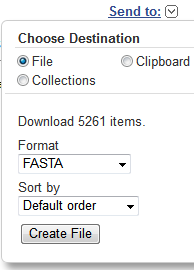If you’ve settled upon travel insurance to cover illness/accident on your visit back to your country of citizenship (queue USA chant), it’s decision time on the exact policy.
There is a staggering array of choice, divided into three main product types:
- Single-trip
- Multi-trip
- Backpacker
While there are tools to narrow the search, I am not aware of any that will take the unique concerns of expats (e.g. cover in country of citizenship) into consideration. This means reading terms and conditions: you cannot take for granted that the policy will be right for you, since the screens available are designed for vanilla residence==citizenship types.
For the UK-based among us, this means using a comparison engine like Money Super Market or Confused.
Comparison engine evilness
- For underwriting purposes, your age is fair game, but not personal identifying information such as Name, email or phone number. I used the traditional ‘abc xyz’ and abc.xyz@yahoo.com as work arounds.
- Check the insurance agent directly. You will almost certainly find price discrepancies between going direct with the agent and going through the comparison engine.
- For visits longer than ~7days, check both single-trip and annual multi-trip rates. I found the break-even point is between the two types of products 7-10 days.
Debenhams evilness
After reading through 1/2 dozen terms and conditions, I settled upon an annual multi-trip policy fronted by Debenhams. Cheaper than many single-trip policies for my length-of-stay.
There is much evilness to be had here, but some of their competitors were even worse…
* £30.60 for the Gold policy from Confused versus the (as far as I can tell identical) £61.51 Superior policy ‘direct’ from Debenhams.
* ‘Direct’ is a bit of a misnomer since Debenhams is a front. The policies are actually underwritten by Rock Insurance, which is itself the UK-front for a Swedish firm named SOLID Försäkringar. If it’s any consolation, both firms are registered with the Financial Services Authority [1, 2]. Though, if anything goes amiss, I have more faith in Debenhams attempting to salvage the reputation of its personal finance business than the FSA.
* The 3-star Defaqto rating is sufficient. Self-insure against luggage loss and cancellation, so the extra coverage that the 4/5 star policies cover in these areas is irrelevant. Given that the legal coverage for ‘high street’ policies is a joke (£15k), all they’re worth is the medical (£10M) and personal liability (£2M) cover.
* If you’re an expat considering travel insurance, be aware that you aren’t really protected against a very serious illness/accident, see Part 1.
Debenhams BEYOND evil
Saving the most evil for last…
* Buried in the terms and conditions there is an automatic renewal clause, BEYOND evil IMHO. Opt-out can be performed online: http://ww2.rockinsurance.com/autorenew/
* Making Melkor look like Wayne Brady, some companies have a written-only or phone-only (invariably an 0845 or other premium rate number) opt-out. Unspeakably evil.
As with all things, YMMV.
Written with StackEdit.


